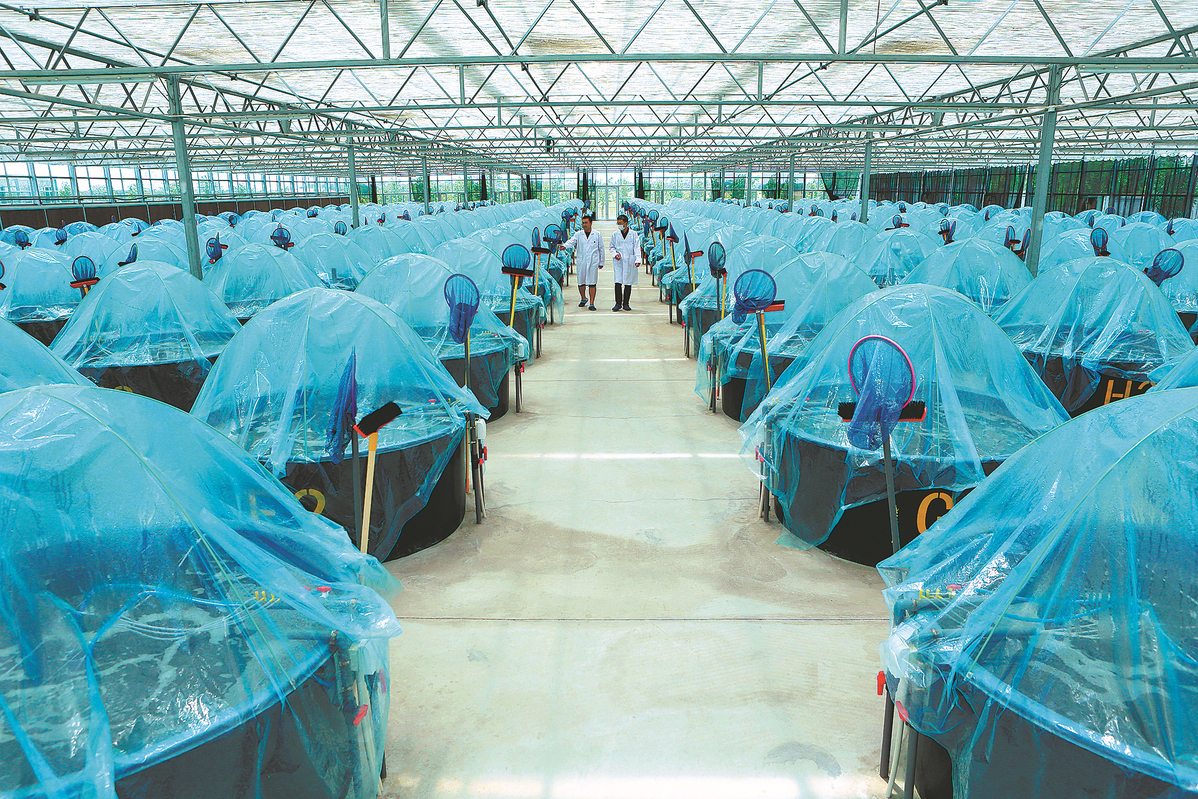Sustainable aquaculture nets responsible catch


A small city on China's eastern coast is championing sustainable fish farming practices by recycling wastewater, promoting the proper use of fish drugs and releasing fish to support the recovery of wild species.
At traditional sea farming facilities, continuous water exchange is vital for waste removal, maintaining oxygen levels and diluting pollutants, leading to substantial seawater consumption and significant costs for water transportation and treatment.
However, a fish farm in Changyi, Shandong province, is embracing cutting-edge technologies such as filtering systems and bioreactors to minimize water use. The farm in Xiaying township has successfully reduced its seawater needs by approximately 80 percent thanks to these advanced technologies, according to Changyi Haijingzhou Biotechnology Co, the farm's owner. The organic waste generated during the recycling process is repurposed to raise rag worms, an important fish feed, the company added.
The company has also implemented a smart feeding system to automate the precise delivery of feed to the fish at specific intervals, thereby reducing the dependency on manual labor.
Liu Xinpeng, the farm's manager, highlighted that these innovations have created a demand for a younger and more educated workforce. "Over 90 percent of employees now are those in their 20s and early 30s," he said.
The farm is the poster child for a local initiative aimed at modernizing the outdated fish farming industry to increase production and reduce pollution.
Guo Kaikai, an official from Changyi's Marine Industry Development Center, said the initiative has secured over 80 million yuan ($11 million) in funding from higher authorities in the past three years to revamp the industry, with 2 million yuan earmarked to subsidize Haijingzhou's wastewater recycling system.
"The initiative's focus is on upgrading facilities, promoting sustainable practices and improving the efficiency and quality of fish production," he said.
To address the misuse of fish drugs, authorities in Weifang — the overseeing jurisdiction for Changyi — have collaborated with the Chinese Academy of Fishery Sciences and other research bodies to provide online medical guidance to fish farmers through a remote diagnosis system dubbed the "fish hospital", which is funded by public resources.
Li Dayong, a fish farmer benefiting from this initiative, praised its effectiveness. When his fish fell ill, he documented the symptoms, took photos of the sick fish and uploaded the information to the system.
On the receiving end were leading fish experts from Shandong province, including from the Ocean University of China in Qingdao, who provided a diagnosis and recommended suitable medications.
Guo from Changyi's Marine Industry Development Center highlighted that the system has provided an average of 1,400 diagnoses annually since its launch in 2021, leading to a 20 percent reduction in disease incidence rates.
The fish farm is also releasing commercial fish, shrimp and crabs into the sea to aid in the recovery of wild species, and to fortify the oceanic food chain. Guo said over 60 million yuan has been allocated for this initiative since 2019, resulting in the release of 2.4 billion such creatures.
According to third-party analysis, every 100 yuan invested in this endeavor can generate approximately 1,700 yuan in financial return.
- Surging flu cases drive up demand for drug
- Nanchang funds 19 free funeral venues after tragedy
- Massive ice sculpture replicates CNS?Liaoning aircraft carrier
- China to enhance to improve carbon footprint
- Experts advocate vaccinations to combat flu cases
- Singer Lu Han apologizes for inappropriate behavior





































